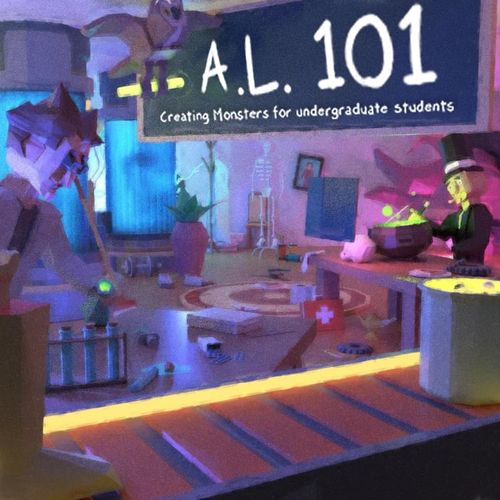|
Advertisement
|
Artificial Life 101: Creating Monsters for Undergrad Students

DescriptionEach player has to gather sets of resources to build a monster from fantasy or sci-fi as a semester thesis. They only have 15 days (rounds) left. The players gain victory points by turning in sets of resources described by their thesis cards, which are unique to each player and to be kept secret as long as possible. Each thesis emphasises three of the five available resource categories: Science, Magic, Components, Flesh and Energy. To gather resources, they have to build a laboratory which transform, splits or fuses resources or teleports them all over the place. The players vie for space and race against time to gather the right material in a chaotic card game with a modular playing field and engine-building elements. Each turn consists of three phases: In the first phase a player adds a tile to or modifies a tile of their laboratory to give it more functions, like turning certain resources into others, duplicating resources or fusing certain resources into more resources of another kind. A smartly planned lab can set of chain reactions to create lots of the wanted resources from any kind of original resource. In the second phase, they can choose to either feed a new, randomly determined resource into their lab, or let resources in the lab go into the next stage of a reaction. In the third phase, they can turn in resources gathered in their lab for points or special action cards, which can help them or hinder other players through various bonuses. Turning in resources for points reveals a players thesis to other players, so they can better try to sabotage their labs. After fifteen rounds, the player who turned in the most relevant sets for their thesis wins. There are multiple strategies to build a functioning lab with their own risks and rewards, and until the last turn there can often be dramatic changes in the score. -description from designer Game DiscussionsAdd CommentYou need to be logged in to comment. Insert Bullet List Please enter at least one item. Item: Item: Item: Item: Item: Insert Numeric List Please enter at least one item. Item: Item: Item: Item: Item: Insert Link Please enter the link of the website Optionally you can add display text Insert Email Please enter the email address Optionally add any display text Insert Image Please enter the link of the image Insert YouTube Video Please enter the link of the video Marketplace | ||||

Comments (0)